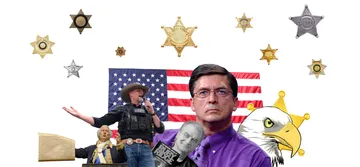Author’s note: I drafted this commentary just before the release of a grand jury report that chronicled hundreds of sexual crimes against children committed by priests in Pennsylvania. While the litany of horrors described in the report has become distressingly familiar, it’s unlikely that lay people know what happens to predatory priests after the Church is forced to acknowledge their crimes.
On July 27, Pope Francis responded to charges that Cardinal Theodore McCarrick, the retired Archbishop of Washington, D.C., had been credibly accused of sexual abuse. The pope accepted McCarrick’s resignation from the College of Cardinals, barred him from public ministry, and ordered him “to remain in a house yet to be indicated to him, for a life of prayer and penance,” pending a canonical trial.
Having been victimized by a priest who was similarly sentenced to what lay people may view as house arrest, I knew that the pope’s directive conformed to canon law, not civil justice. Like countless other priests accused of crimes committed decades ago, McCarrick, 88, would likely never face prosecution for serious offenses now far beyond the statute of limitations. Is Church-imposed penance an adequate substitute? Without parsing the complexities of canon law, here’s what generally happens to priests who are credibly accused:
If cases fall within the statute of limitations for criminal prosecutions, priests convicted in criminal courts can be involuntarily laicized, or, in the Church’s terms, “dismissed from the clerical state.” If credible accusations emerge after the statute of limitations has expired, the Church usually removes those accused from “public ministry” (meaning they can still say Mass for and by themselves), but the severity of the restrictions varies according to the gravity of their crimes. Many accused priests are ordered to devote their lives to prayer and penance. In some little-publicized instances, they may be forced into seclusion, as happened to McCarrick and to the priest who abused my brothers and me.
The parallel between these cases is not simply that both involve the Church’s version of house arrest; it is that both illustrate that Church officials cannot be trusted to bring any perpetrator to justice.
Like virtually all of the many victims I know who reported their abusers to the Church, I didn’t impart any new information when I complained to superiors of the Rev. Frank Nugent at the Salesians of Don Bosco. They were fully aware of his notorious behavior, which, in my family’s case, included his theft of tens of thousands of dollars to pay for ski trips, shopping sprees, drugs, alcohol and other inappropriate extravagances for my brother and me and our friends for nearly a decade.
Nugent, who died in 2011, worked at seminaries, high schools, retreat houses and youth camps from the 1960s until he was removed from public ministry in 2002. He chose his targets carefully, relying on our single mother, who was struggling to care for seven children, not to question his behavior and expecting witnesses and victims to deny obvious transgressions for fear that exposure would place the Church itself in jeopardy.
If this level of submission sounds crazy, it’s helpful to remember that police, judges, politicians and journalists obeyed the Church’s code of silence for decades. The question Church leaders still ask when confronted with stories of sexual misconduct is less, What happened? or Who was harmed? but, Can this threat to the Church be contained?
In McCarrick’s case, the apparent answer was yes, especially after 2015, when a New York City pastor wrote to Cardinal Sean O’Malley, head of the Archdiocese of Boston and an advisor to the Pope on sexual abuse policy, about McCarrick’s misbehavior. O’Malley’s office declined to act, excusing itself on the grounds that such matters were beyond its purview, and offering no reason why the information was not conveyed to the Vatican.
O’Malley’s inaction repeats what I and countless other victims endured. When I contacted the Salesians in the early 1990s, my only goal was to keep Nugent away from children. It was only after I learned in 1998 that he was working in a children’s camp that I filed a legal claim. After I received a settlement and assumed he’d been stopped, I discovered he was still performing public ministry and, even worse, had been moved into a building that housed a Youth Center.
I wrote letter after letter excoriating the Salesians for breaking their promise to prevent him from striking again, but my entreaties were ignored. Then, just before an article about Nugent’s criminal history appeared in the New York Times, I received an abject apology. I also learned that he had been placed in seclusion, “without a car, in a location that is not near any youth facility, under the constant supervision of two other Salesians who are under instructions that he’s not to go out.''
I’ve joked about the Salesians’ construction of this medium-security monastery. But the issue was not that Nugent’s house arrest failed to punish him sufficiently; it was that no one explained his sudden transformation from harmless servant of God into menace to society. I can only speculate that the Salesians were trying to get out in front of bad publicity, just as I wonder if McCarrick’s quick confinement could foreshadow even more horrific charges.
The machinations of the Church hierarchy will remain opaque. But if we can’t unravel this mystery, we can recognize one certainty: that bishops’ charters, papal edicts and calls to prayer and penance have no place in our criminal justice system. Whatever steps the Church may take, it will never be equipped to investigate and adjudicate criminal activity, and its efforts to avoid secular supervision can only promote injustice.
Susan E. Gallagher is an associate professor of political science at UMass Lowell. She may be reached at susan_gallagher@uml.edu
